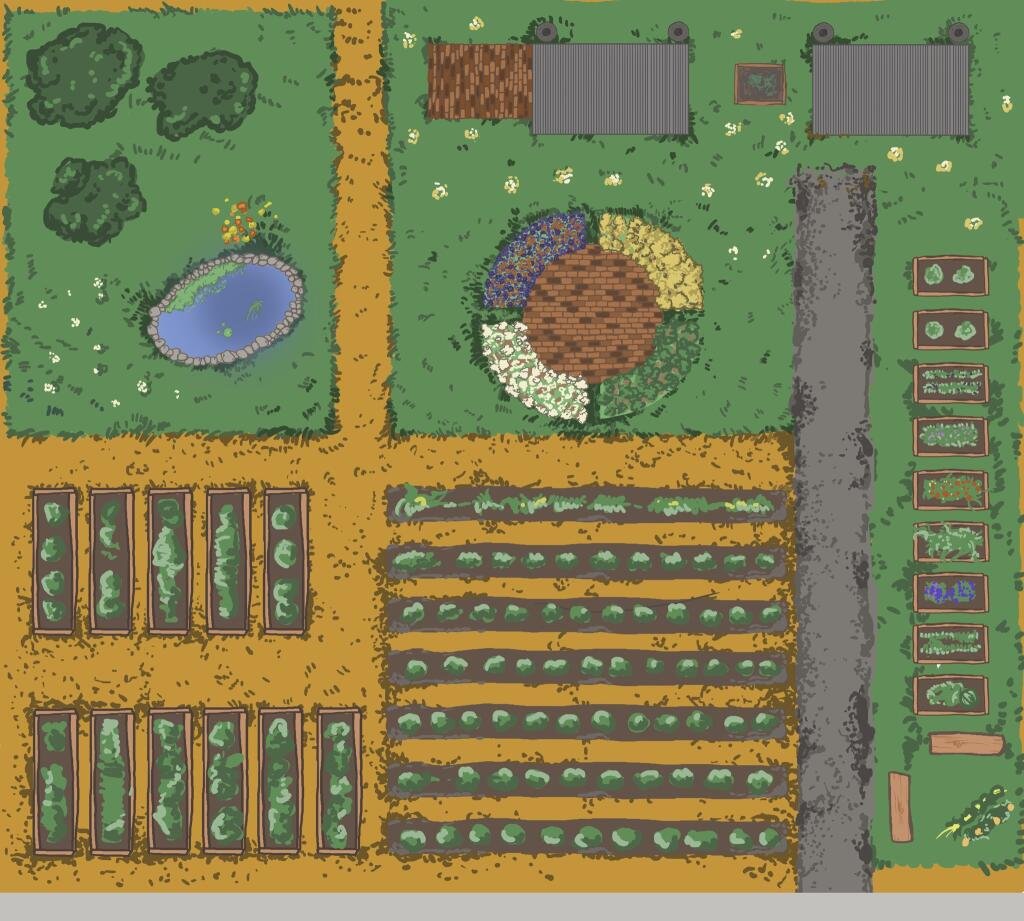
1st Quarter Newsletter
recognition-remembering-reconciliation-restoration
-

DBFLF
The Detroit Black Farmer Land Fund is a fundraising initiative and nonprofit led by leaders from Dtown Farms, Oakland Ave and Keep Going Detroit to support black growers in Detroit by providing funding For land purchasing and infrastructure. We were chosen as recipients for their 2021 campaign and are proud to be in fellowship with 70+ other black growers in Detroit. The grant received from the DBFLF will be spent directly on Land purchase and Soil Testing.
-

Detroit Soup
Powered by the Build institute, Detroit soup is a community based fundraising platform where community members give $10 for a bowl of soup and an opportunity to hear and vote on 4 different pitches from local Ideators. theJOYproject was invited to be an Ideator in December of 2021 and our pitch won $1092 of community support in January 2022.
-

Detroit Public Schools
In partnership with Detroit Employment Solutions Corporation (DESC), the Spring Student Internship - Work-Based Learning Program was established by DPSD and the office of college and career readiness to provide on-the-job training for students in grades 11 and 12.
Students will participate in a six (6) week paid internship program, teaching students workplace readiness skills, personal responsibility, gain exposure to “opportunity” environments and foster working relationships.
TheJOYproject has been selected as an employer in this year's program and we look forward to working with DPS students this Spring.
-

NERP
February 9th began a 9 month cohort with The North End Resilience Project (NERP). NERP seeks to uplift Black and Brown leaders of the North End to continue doing their mission work with the support of capacity building resources. NERP is led by Michigan Community Resources (MCR) and generously funded by the Knight foundation. We look forward to 9 months of business counseling, one on one and group sessions to help develop The Joy Project into the organization we want to be .
-
The Archivists
We were invited to join a collective of archivists, including Black Bottom Archives, Inside Southwest and Comité Cultural Boricua de Detroit who will be programming Michigan's FIRST Casita—a place of community and liberation . Together we will curate an exhibition of storytelling and archival style displays showcasing our collections and encouraging visitors to consider the ways they too are archivist within their own community and families.
-
1st Annual Spring Fundraiser
We had our first annual Spring Equinox Fundraiser where we got to share some delicious Sunday dinners, see some beautiful faces and raise $600 towards our 2022 growing season. $80 in tips was collected to support the meals our team member, Josmine of Indigo culinary Co, cooks for the Detroit Community Fridge East side location.

Join Us for our Spring Season Volunteer Days
Soil As Archive
The Soil Keeps Score. while most of the nutrients that feed the plants that we grow for food sit near the surface, Dif a little deeper and you can learn a lot about a place. Archeologists have found all sorts of stories beneath the soil. From pots and instruments and tools to the bones of humans and other animals and even entire cities. The land you live on may have once been an ocean and a close look at the soil will tell you that.
The soil doesn’t just hold stories of the dead and gone. It is a living, breathing universe of all sorts of bacteria and decomposing materials that provide the optimal environment for life; supporting plants, insects and animals.
What is in the soil you grow your food in has a direct impact on the nutrients of that food and how safe that food is to consume. So knowing what used to be where you plan to grow is an important thing for a farmer to consider. A biohazard waste site probably isn’t the best place to start a garden if you plan on consuming what you grow.
theJOYproject site has been sitting as a ‘vacant lot’ for quite a while now. Rainwater has tended to the grasses and trees and leaves along with grass clippings, animal poop and insects have been tending to the soil. Adding compost will help boost the richness of the soil for the plants we plan to grow
But if you dig just a little past the surface the soil will remind you that there used to be houses here. Demolished and buried, the remains of 3 homes lie below theJOYproject. Because building materials like treated woods, lead based paints and plumbing materials can leach nasty chemicals into the soil, getting soil tested is an important first step in ensuring a safe and healthy growing operation. That is why in fall of 2021 we asked volunteers to come help us dig holes all over the site. We collected soil samples and Keep Growing Detroit helped us send them into a lab to be tested for anything that would compromise our ability to grow safe nutritious food.
Lead in soil is measured in parts per million (ppm) A safe lead test is an estimated 300 ppm or less (performing multiple samples in a 30x30 area) per sample area. We are happy to report that all of our 15 tests came back under 150 ppm with nearly 3% or more of organic matter in some areas and plenty available nutrients like calcium, phosphorus , sulfur , sodium, magnesium , and more our soil is safe and we are ready to GROW!
